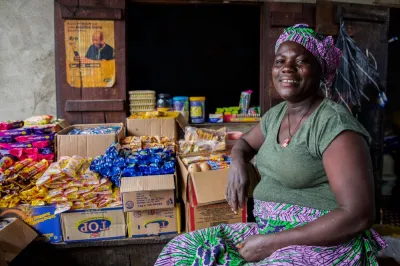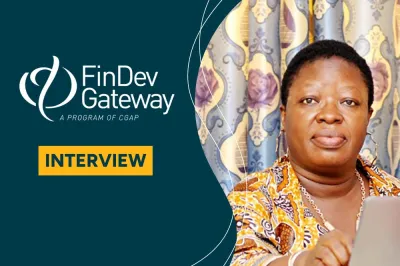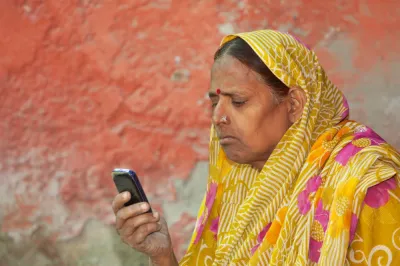FinDev COVID-19 Update | 15 - 28 Jul 2021
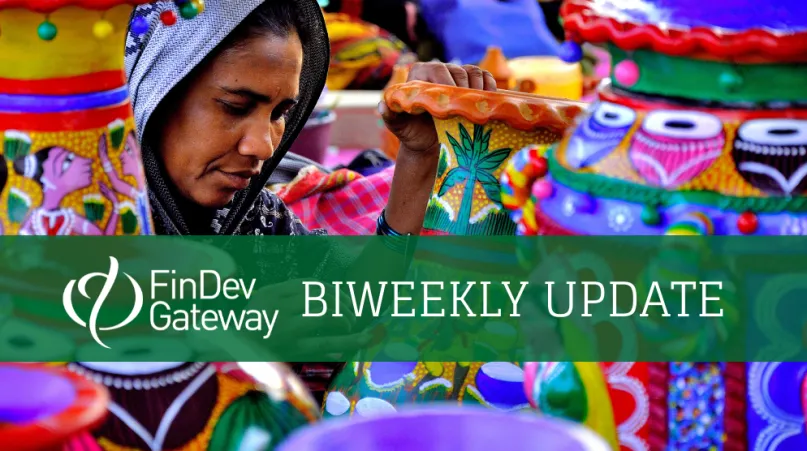
FinDev Gateway has created this COVID-19 Update with the latest and most relevant knowledge resources for financial inclusion. Sign up here if you'd like to get this update delivered to your inbox.
If you have content to share in our COVID-19 update, please submit here or contact us directly.
Do you find the FinDev Update useful? Take a moment to let us know >>
Global Update
- The latest data on the microfinance sector gives a positive outlook for 2021 as MFIs continue their recovery, according to the July snapshot by CGAP and Symbiotics. Africa and Europe and Central Asia have had the swiftest rebound thus far; however, recovery for all regions is fragile and long-term impact still uncertain. The latest survey results from ADA, Grameen Crédit Agricole Foundation and Inpulse confirm these findings, showing MFIs in the Middle East, North Africa, Latin America and the Caribbean as the most affected by the crisis, but with most MFIs globally regaining their optimism as they look towards the future.
- Analysis of a new dataset on global remittances from an IMF Working Paper seeks to understand the factors behind their surprising resilience during the pandemic, finding that remittances generally went up as infection rates in senders’ home countries went up, confirming their importance as a stabilizing force during crises. The shift from informal to formal channels, strictness of lockdown measures in host and home countries, and the size of fiscal stimulus measures in host countries also all played a role in the flow of remittances in 2020.
- More detail on the pandemic’s impact on MFI clients and SMEs has been revealed in new publications. FSD Kenya’s COVID Diaries found an increasing divergence in impact towards the end of 2020, with higher-income, diversified households taking advantage of low wages to make new investments, while some of the worst-hit households - often salary-dependent workers who lost jobs - saw their fortunes continue to deteriorate. ADA found that MFI clients in 7 countries became more food-insecure as incomes declined, and that MFIs responded with concrete measures such as food kits and loan repayment extensions.
Asia
- In Thailand, fintech solutions have gotten a boost over the past year, as real-time digital payments increased by 104 percent during the pandemic, and the national digital payment system PromptPay partnered with Singapore’s PayNow to facilitate cross-border transactions. The Thai government is also exploring implementation of a Central Bank Digital Currency.
- Fintech companies in India have benefited from consumers’ shift to digital during the pandemic, commanding higher growth and valuations. In the next five months, three Indian fintechs - Paytm, Mobikwik and Policybazaar - are planning initial public offerings (IPOs) which are expected to raise a total of about $3.7 billion.
- Conventional banks in the Philippines are poised to lose market share to fintech firms, as the banks remain slow in developing digital options and capturing unbanked segments while fintechs are responding more aggressively, according to a recent Moody’s report.
- MFIs in Cambodia have restructured $1.7 billion in loans in the first half of 2021, according to the Cambodia Microfinance Association. Loan restructuring applications peaked in April-May with the second wave of COVID-19, reaching about 20,000 applications per week, and are now down to about 2,000 per week.
Africa
Some articles and knowledge resources referenced in this section are in French.
- MFIs in Africa are recovering faster than other regions in terms of number of borrowers, disbursements and profitability, according to the latest CGAP and Symbiotics COVID-19 Briefing. However, structural issues at the macro and country levels could threaten this recovery.
- Ethiopia launched its first digital payments strategy to promote financial inclusion.
- Women’s employment growth in Africa in 2021 is expected to compensate for the job losses due to COVID-19, says the International Labor Organization. The employment rate for women is projected to reach 48.7 percent, the highest regional increase worldwide. However, dependence on the informal sector remains a concern.
- Refugees in Uganda are recovering at a slower rate than Ugandans, according to a World Bank phone survey. Refugee employment rates fell to 32 percent in Feb/Mar 2021, compared to 56 percent pre-lockdown, while the national employment rate of Ugandans returned to its pre-COVID-19 level of 86 percent over the same time period.
For more on Africa, check out the latest Portail FinDev Biweekly Update in French.
Latin America and the Caribbean
Most articles and knowledge resources referenced in this section are in Spanish.
- Over 2.6 million adults in Colombia opened a savings or credit account for the first time in 2020, and more than 26 million adults actively use financial services, 13 percent more than in 2019. Colombia now has 88 percent of its adult population with a bank account, as COVID-19 accelerated financial inclusion.
- 3 out of 4 Peruvian entrepreneurs use digital tools to run their businesses, with those in the age range of 26 and 40 years old going digital at higher rates.
- Mexicans have decreased the frequency of cash use during the pandemic; 57 percent said they used credit, debit or prepaid cards instead of cash.
- UN Women and the Central American Bank for Economic Integration launched a $1 million fund targeting women-led MSMEs in the region. The initiative aims to provide businesswomen with access to credit and help them rebuild their productive capacities and accelerate job creation.
- Debit card usage in Argentina continued to grow in the second quarter of 2021, increasing by 50 percent compared to the same period last year. This boom in digital payments was driven by changing consumption patterns due to COVID-related closures.
For more on LAC, check out the latest Portal FinDev Biweekly Update in Spanish.
Arab World
Some articles and knowledge resources referenced in this section are in French and Arabic.
- In Morocco, the cash on delivery payment method has declined by 86 percent since the start of the pandemic, while the use of digital payments increased by 74 percent as consumer confidence grows, according to a new report by Visa.
- Remittances are playing a key role in supporting the economic rebound of low-income countries, according to a report by research firm Oxford Business Group, with a predicted increase of 2.6 percent for the Middle East and North Africa.
- Saudi Arabia recorded a 35-percent year-on-year increase in the number of investment deals in the technology startup sector in 2020. Amid the pandemic, the world’s largest oil and gas company, Saudi’s Aramco, tripled the amount of money loaned to startups in the country.
For more on the Arab world and resources in Arabic, check out the latest FinDev Update in Arabic.
COVID-19 Resources

COVID-19 Resource Hub
A collective space for the financial inclusion community to share experiences and lessons learned from the pandemic
FinDev Coronavirus Data Tracker
Data relevant for financial inclusion - find out who is tracking what
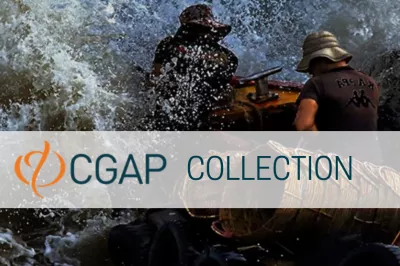
Blogs & Opinion
If you have a blog idea and would like to write for the FinDev Blog, please review our guidelines. We do not cross-post blogs that have been published elsewhere, but if you wish to share an existing blog post in our next FinDev COVID-19 Update, you can send it to us using our contact form.
Small but Mighty: CGAP and the Future of Financial Inclusion
27 Jul 2021 | Greta Bull | CGAP
Delivering Social Assistance During COVID With a “Digital-First” Approach: Lessons from India
22 Jul 2021 | Alan Gelb, Anit Mukherjee & Brian Webster | Center for Global Development
Making This Year Better Than the Last: A Recent Survey Assesses the Pandemic’s Impacts on Micro and Small Businesses
15 Jul 2021 | Juan Carlos Thomas | NextBillion
How Has COVID-19 Impacted Financial Service Associations?
14 Jul 2021 | Wanza Mbole Namboya & William Smith | FSD Kenya
Recent Publications
Do you have a publication to add to this list? Share your work on FinDev Gateway.
Global Microfinance Recovery Continues, Especially in Africa, but Pandemic’s Long-term Impact Remains Uncertain
Jul 2021 | CGAP, Symbiotics
The Impact of the Crisis on Microfinance Institutions: Analyses and Perspectives
Jul 2021 | ADA, Grameen Credit Agricole Microfinance Foundation, Inpulse
Microfinance Clients Facing the COVID-19 Crisis: From Findings to Action for MFIs
Jul 2021 | ADA
Defying the Odds: Remittances During the COVID-19 Pandemic
Jul 2021 | International Monetary Fund (IMF)
SME Finance Loans for Growth Impact Report 2020
Jul 2021 | Symbiotics
Surviving 2020: Lessons on Resilience from Kenya’s Covid Diaries
Jun 2021 | FSD Kenya
View All Publications Related to COVID-19 >
Events
Women-Owned Enterprises Amid COVID-19: Strategies to Support Their Survival, Revival, and Recovery (Webinar Recording)
22 Jul 2021 | MicroSave Consulting (MSC)
View All Upcoming Events Related to COVID-19 >
Quick Links:
FinDev Guide
About this guide
Published
Topics
Contributed by a global financial inclusion community member. Share your lessons learned
Write for usLeave a Comment
Comments on this page are moderated by FinDev Editors. We welcome comments that offer remarks and insights that are relevant to the post. Learn More
